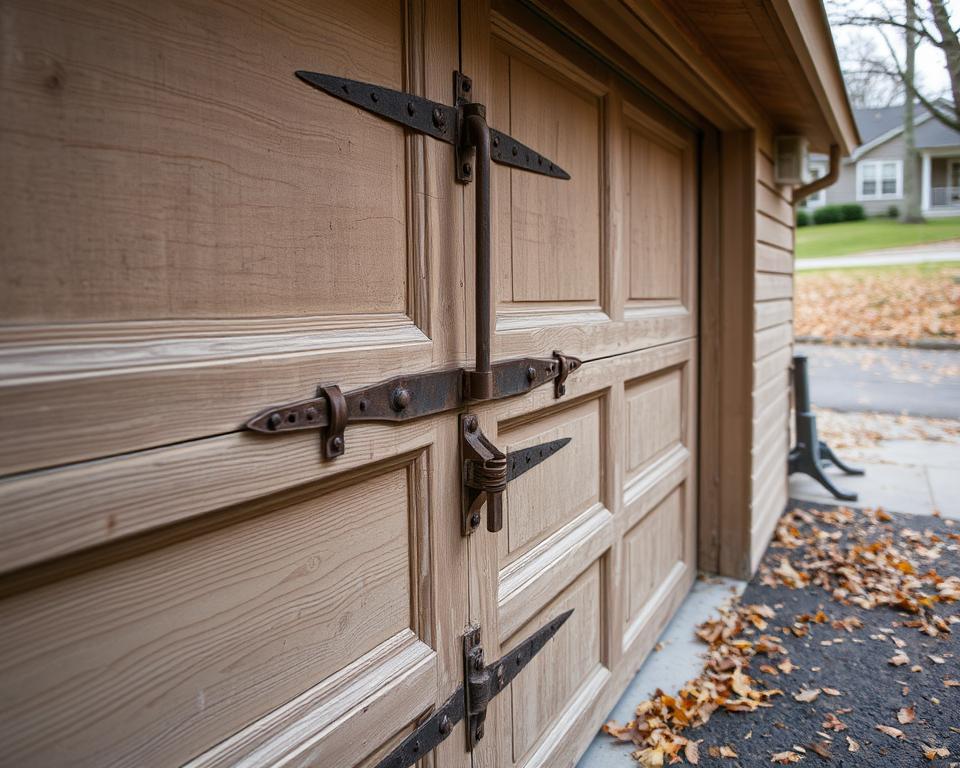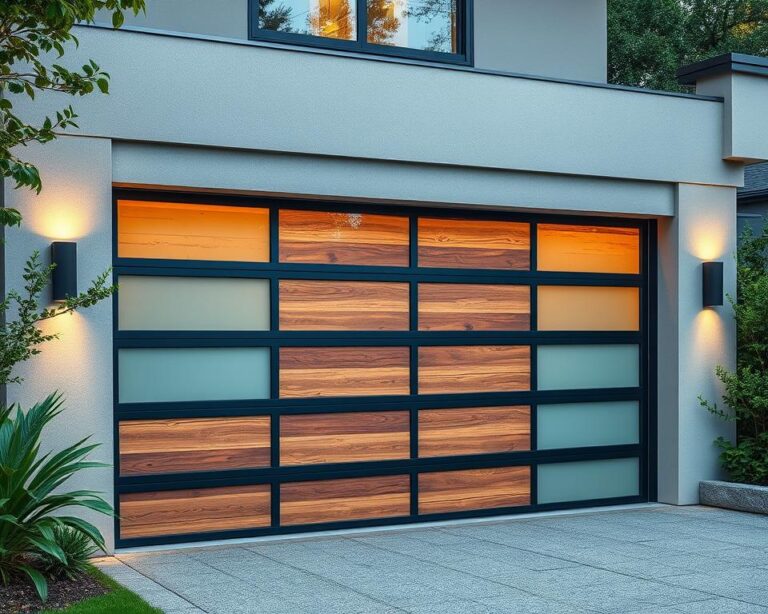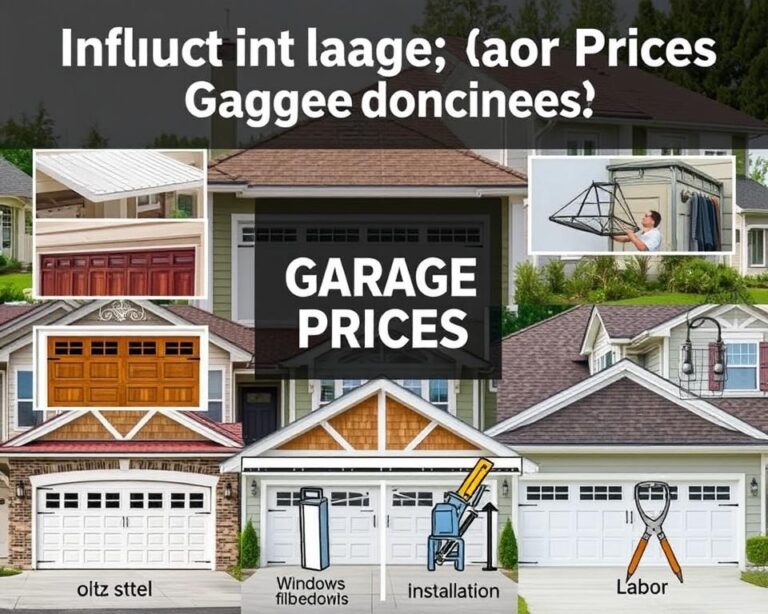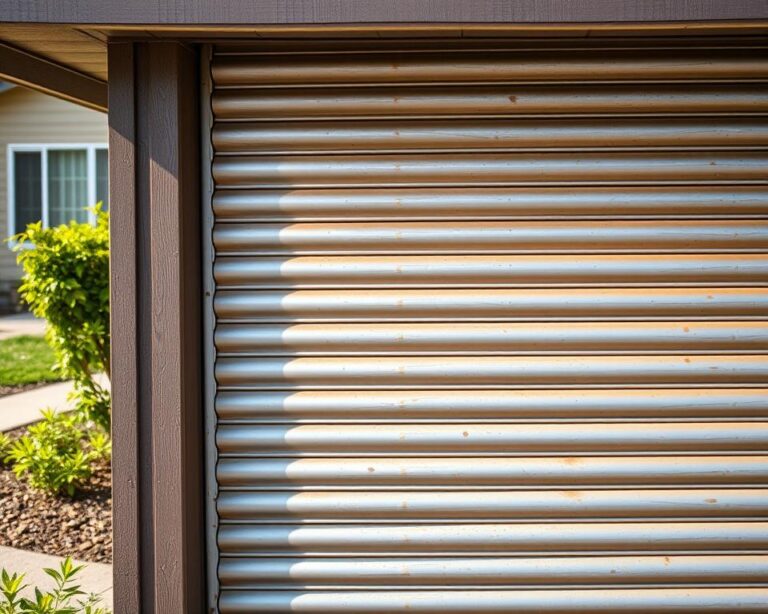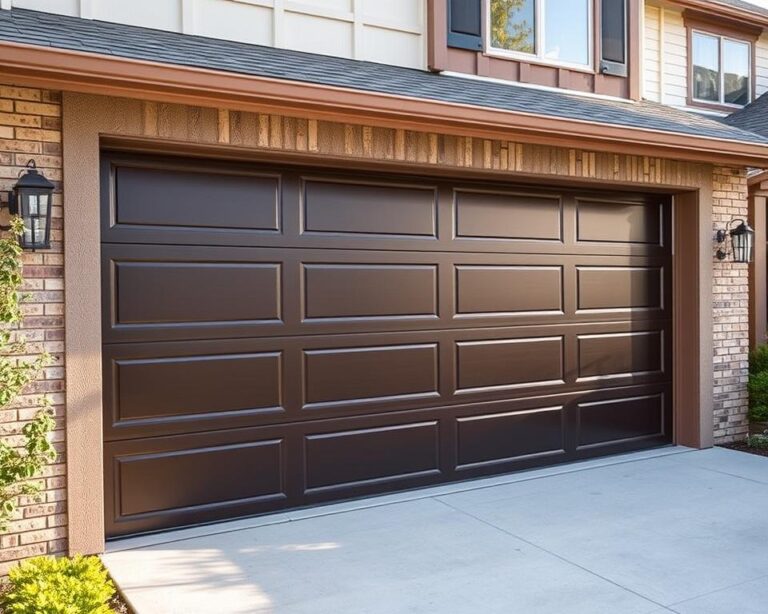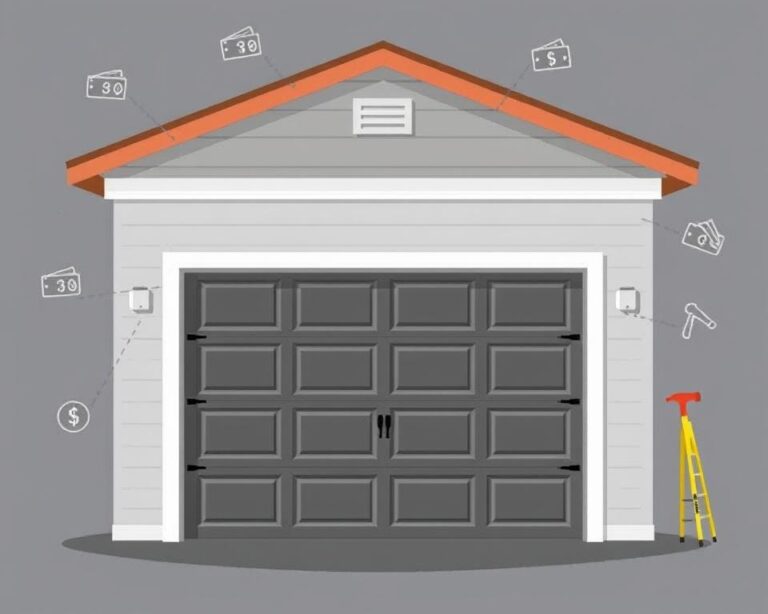How Long Does a Garage Door Last?
We often wonder about the garage door lifespan and what factors affect its longevity. The average lifespan of a garage door is 15 to 30 years. This depends on usage, maintenance, and climate.
Regular maintenance is key to extend a garage door’s life. It prevents premature wear and tear. This ensures our garage doors last longer and saves us from costly repairs.
Exploring the garage door lifespan, we’ll look at what affects its longevity. We’ll also share tips on how to extend our garage doors’ life. This is important for their durability and overall lifespan.
Understanding the Average Garage Door Lifespan
Several factors affect how long a garage door lasts. The material, how often it’s used, and maintenance are key. A good aluminum or steel door can last 20 years or more. A wooden door, if well cared for, can also last about 20 years.
The quality of materials and regular care greatly impact a garage door’s life. For example, torsion springs can last 10,000 to 20,000 cycles, which is about 8 to 14 years. A standard 10,000-cycle spring door, used twice a day, can last 13 to 14 years.
Different Types of Garage Doors and Their Longevity
Steel, aluminum, vinyl, fiberglass, and wood composite doors can last 20 to 30 years. Wooden doors can last 15 to 30 years. Choosing the right door is important for a long-lasting investment.
Expected Lifespan by Material Type
The lifespan of a garage door depends on its material. Here are some general guidelines:
- Steel garage doors: 20 to 30 years
- Aluminum garage doors: 20 to 30 years
- Wooden garage doors: 15 to 30 years
Signs Your Garage Door is Nearing End of Life
Signs you might need a new garage door include uneven lifting, strange sounds, and speed issues. If you see these signs, check your door and think about replacing it. This ensures your safety and the value of your investment.
Key Factors That Impact Garage Door Durability
We know how important it is to extend garage door longevity for homeowners. Several factors affect a garage door’s durability. These include usage, maintenance, and climate. For example, regular lubrication and cleaning can prevent wear and tear, making the door last longer.
Some key factors that impact garage door durability include:
- Usage frequency: The more a garage door is used, the shorter its lifespan.
- Maintenance practices: Regular inspections and lubrication can extend the life of springs, rollers, and openers.
- Environmental conditions: Extreme temperatures and weather conditions can affect the lifespan of a garage door.
By understanding these factors, homeowners can take steps to extend the longevity of their garage doors and increase their durability. Proper maintenance and care can help prevent wear and tear. This ensures the garage door lasts for many years.
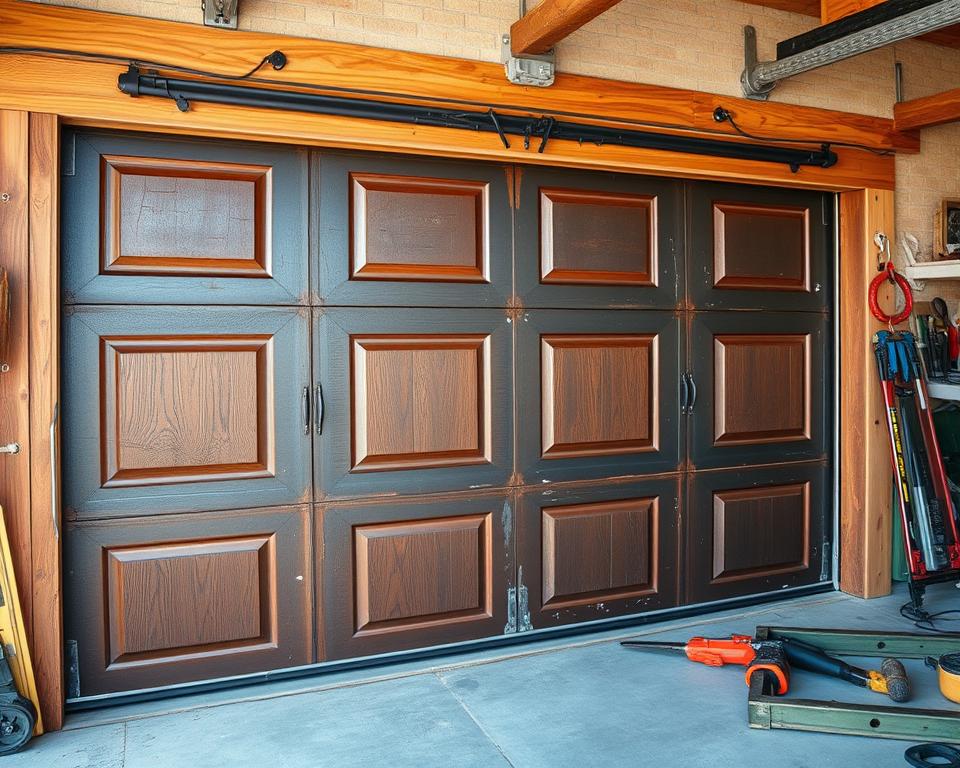
Essential Maintenance to Extend Your Garage Door’s Life
Regular maintenance is key to making your garage door last longer. It helps prevent small problems from turning into big ones. By following these tips, you can extend your garage door’s life and avoid expensive repairs.
Some important tasks include checking and oiling the rollers and hinges. Also, inspect the weatherstripping and test the emergency release and sensors. Do these monthly. Clean the garage door and check the hardware seasonally.
Monthly Maintenance Checklist
- Check and lubricate the rollers and hinges
- Inspect the weatherstripping and replace if necessary
- Test the emergency release and sensor functionality
By sticking to these maintenance tips, you can make your garage door last longer. Remember, the material your garage door is made of also matters. It can affect how often you need to maintain it.
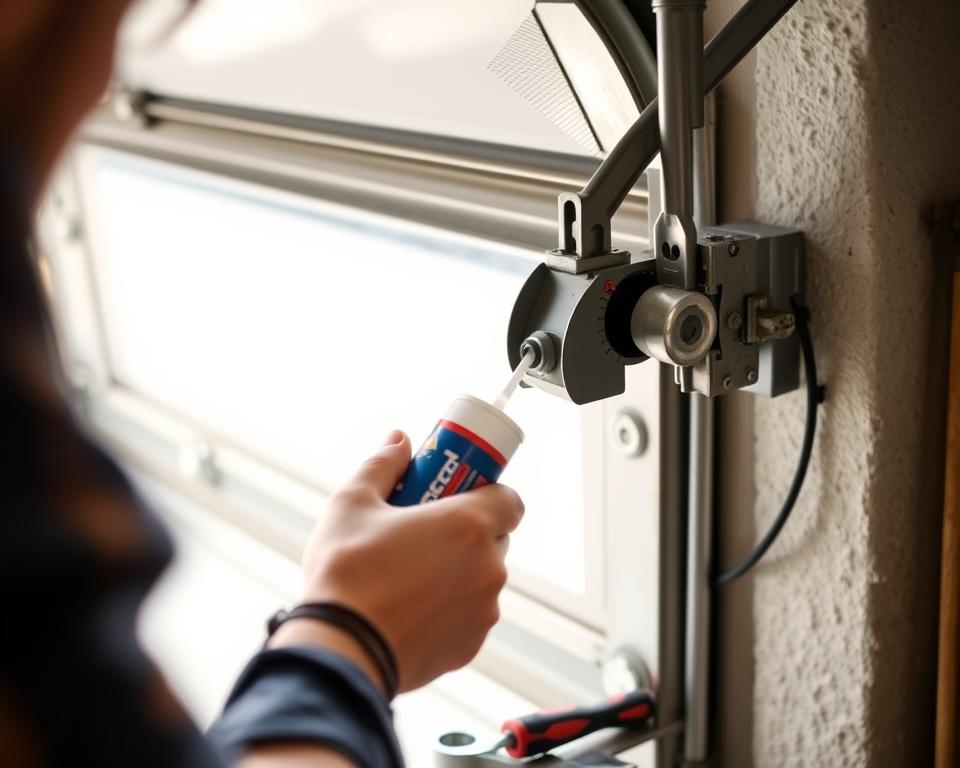
Seasonal Care Requirements
Seasonal tasks include cleaning the garage door and checking the hardware. Also, look for any wear or damage. Doing these tasks regularly helps your garage door work well for years.
Common Issues That Reduce Garage Door Longevity
Exploring what affects a garage door’s lifespan is key. Regular upkeep is vital to keep it running well. Yet, some problems can pop up. Weather damage, mechanical wear, and poor installation are major culprits.
Regular maintenance is key, but some issues can’t be avoided. For example, strong environmental factors like humidity or saltwater can harm it. Also, improperly balanced garage doors can stress the opener, shortening its life by 30% or more.
Regular checks are a must, even for newer doors. Older doors might need checks every 6 to 12 months. Here are some maintenance tips to help:
- Lubricating parts
- Inspecting hardware
- Balancing the door
- Cleaning tracks
- Testing safety features
By tackling these common problems and sticking to maintenance, you can extend your garage door’s life. This means less need for expensive fixes or new doors.
Making Your Investment Count: The Value of a Well-Maintained Garage Door
The garage door lifespan and longevity of garage doors greatly depend on proper garage door durability and care. By following the tips in this article, homeowners can make their garage door investment worthwhile.
A well-kept garage door boosts a home’s value by improving its look and function. Data shows that replacing a garage door can recover about 102.7% of its cost when selling a home. This beats many other home improvement projects. In fact, 9 out of 10 projects with the best ROI are exterior ones, with garage door replacements reaching 106% ROI in the Middle Atlantic region.
Choosing a high-quality, energy-saving garage door and regular upkeep offer many benefits. Homeowners see lower energy bills and higher home value. With the help of expert installers and lifetime warranties, a well-maintained garage door adds beauty and function to a home for years.

